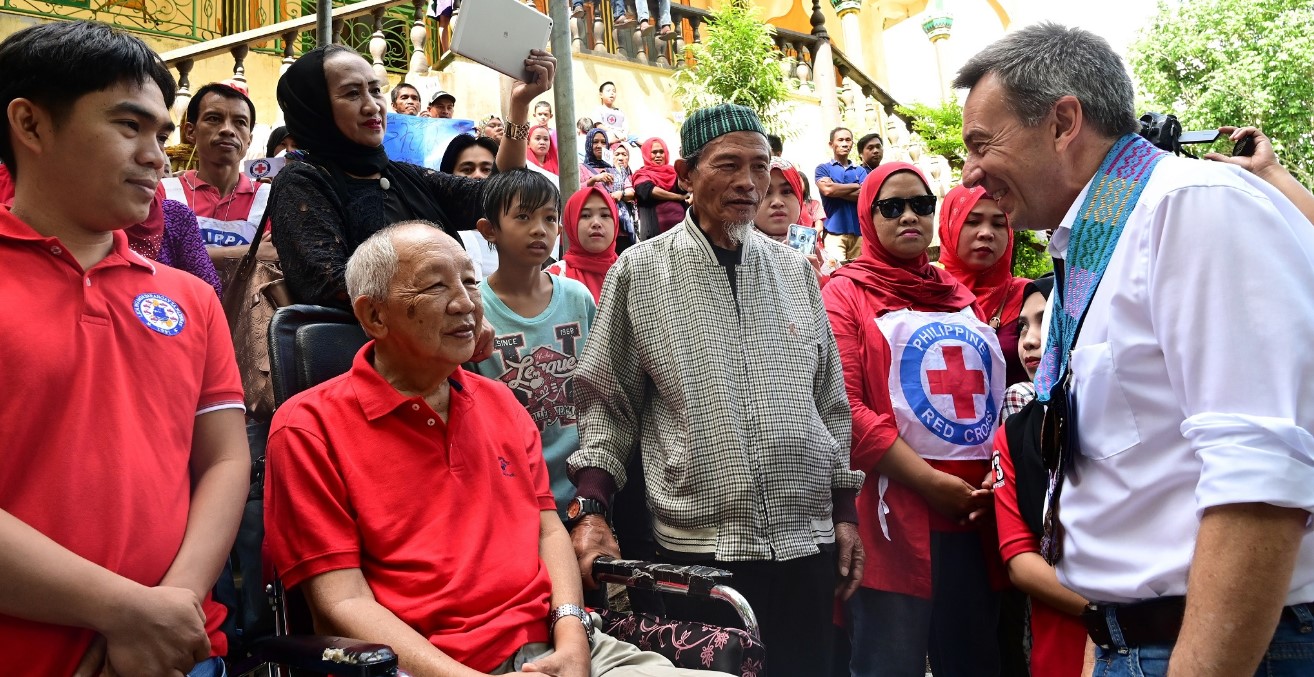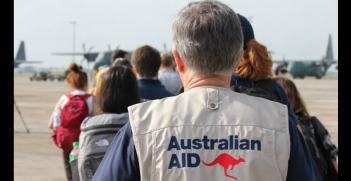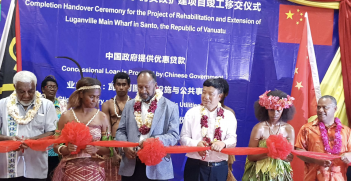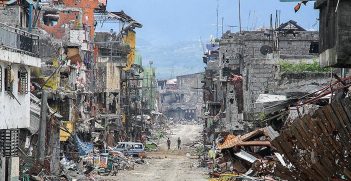The Philippines: How Can States Engage Responsibly in Conflict-Related Support?

With increasingly complex conflicts, how do states ensure the laws of war are complied with? In the Philippines, where armed conflicts have been the reality for more than half a century, different support relationship patterns exist with other countries – Australia among them.
Global trends in conflict are cause for concern. The number of people affected by violence is growing. Conflicts are more complex and increasingly fragmented. More armed groups have emerged worldwide in the last seven years than in the previous seven decades, and only a few of them are fighting alone. Coalitions, alliances, partnerships and other relationships of support are increasingly commonplace between both state and non-state actors.
The shared experience of Australia and the Philippines in this regard has the potential to feed into a broader conversation about engaging responsibly in conflict-related support. This issue touches on the core mission of the International Committee of the Red Cross (ICRC): To prevent and alleviate the suffering of people caught in conflict. Faced with the complexity of contemporary conflict, and challenges to respect for international humanitarian law (IHL), the ICRC’s five-year “Support Relationships in Armed Conflict Initiative” (SRI) seeks to better understand existing relationships between states, or between states and non-state actors, to reduce the humanitarian impact of conflict. The initiative tries to identify and inspire ways in which partners have positive influences on each other, via these support relationships. It focuses on practical measures to safeguard IHL and to mitigate risks that communities exposed to conflict face.
Away from global news headlines, the Philippines — an archipelago of more than 7,000 islands in South-East Asia — is affected by a multitude of internal armed conflicts. Generations of Filipinos living in poor and remote areas of the southern island of Mindanao have been repeatedly displaced by hostilities between security forces and local armed groups. These protracted conflicts have limited people’s access to basic services and stable livelihoods. Despite some progress towards peace since the 1980s, recent years have also seen an increase in both the intensity of clashes and number of armed groups involved.
The ICRC has been active in the country since the Second World War, with the goal of protecting and assisting people affected by armed conflict. With its presence on the ground and international mandate rooted in the Geneva Conventions, we remind all parties to the conflict of their obligations under IHL, with an emphasis on respect for civilians.
Up to 75 percent of people displaced in today’s largest conflicts come from urban areas. Here in the Philippines, we have also responded in recent years to conflicts taking place in cities, where people fighting need to carefully consider their means and methods of warfare, especially with regards to the safety of civilians and potential damage to infrastructure essential to residents. In 2017, the centre of Marawi City in Mindanao was heavily affected by fighting between government troops and local groups linked to Islamic State group. Tens of thousands of people remain displaced after losing their homes and livelihoods; many are yet to rebuild their lives.
During the confrontations in Marawi, Australia provided technical assistance to the Armed Forces of the Philippines (AFP), based on its experience in contexts like Iraq and Afghanistan. Australia’s support continued well after the end of the five-month conflict in October 2017; it included training for thousands of AFP members, but also considerable funding for humanitarian, recovery and peacebuilding initiatives in Marawi.
In fact, historical military ties between Australia and the Philippines date back to the early 20th century and were shaped by both World Wars, with defence cooperation being formalised in the 1990s. Today, the bulk of support from Australia takes the form of training and education, which includes operational law courses delivered to AFP officers by the Asia Pacific Centre for Military Law, as well as mobile training teams that support army units with their urban warfare tactical training.
The Philippines-Australia relationship provides an important example of how the ICRC is engaging with states via this support initiative, building on the bilateral relations it has with the two governments and their armed forces. As guardian and promoter of the Geneva Conventions, the ICRC has a long-standing dialogue with the Philippine armed forces. We observe their operational and training practices through an exclusively humanitarian lens regarding respect for IHL – including some lessons to be learned from the Marawi experience. We regularly support IHL training sessions for headquarters and field units, with their ongoing modernization program providing opportunities to strengthen implementation of IHL in the long run. Our support relationships initiative recently became part of our regular dialogue with the Filipino government and has so far seen an encouraging level of support and openness from their armed forces, including in international platforms discussing related thematic issues.
States and non-state actors will continue to partner on security issues relating to armed conflicts. The continuing challenge will be how to responsibly engage in conflict-related support to minimise the risks posed to affected populations. By acting on its responsibilities, each state – whether providing or receiving support – can play an important role toward ensuring better protection for those caught in conflict, now and into the future.
Boris Michel is head of the ICRC delegation in the Philippines.
This article is part of the Forgotten Conflicts series by the International Committee of the Red Cross, highlighting the overlooked humanitarian consequences of armed violence around the world.
This article is published under a Creative Commons Licence and may be republished with attribution.





